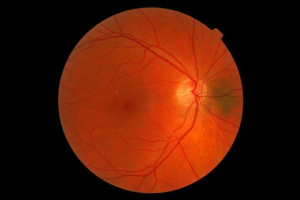An entirely new approach to diagnosis, harnessing the power of increasingly complex and sophisticated algorithms capable of processing a huge amount of data
Artificial intelligence applied in medicine always gives rise to new and promising prospects, especially in ophthalmology. Researchers at the University of Birmingham have, in fact, succeeded in developing, thanks to deep learning, a new AI algorithm capable of producing a diagnosis from retinal images.
It is called RETFound and is a 'foundation model', i.e. a basic machine learning model, trained on a very large set of data so that it can be applied to a wide range of use cases.
RETFound is able to formulate diagnosis and prognosis of both serious eye diseases, such as diabetic retinopathy and glaucoma, and cardiovascular and neurodegenerative diseases, such as heart failure, myocardial infarction, Parkinson's disease or ischaemic stroke.
Artificial Intelligence in Medicine has a very high potential, especially in the recognition of signs of pathological conditions. Specifically, RETFound was trained on 1.6 million unclassified retinal images and subsequently adapted to the tasks of disease detection by means of explicit classification labels.
Millions of eye scans owned by the NHS (National Health Service) were used for development, but the research team to help combat avoidable blindness through the use of AI will make the algorithm freely available for use by institutions. The study presenting the RETFound model was published in Nature in September 2023 (https://doi.org/10.1038/s41586-023-06555)
As is demonstrated in the paper, RETFound is able to ensure similar performance to other AI systems using just 10% of the human organism classifications in its database. This efficiency improvement was achieved by using an innovative 'self-supervising' approach, in which RETFound masks parts of an image and then learns to predict the missing portions by itself.
RETFound has been shown to outperform all state-of-the-art AI systems for a range of complex clinical performances. It also overcomes some of the limitations of many AI systems as it works well on different populations and in patients with rare diseases.
The identification of general problems through the eyes constitutes an emerging science called "oculomics', term coined in 2020 by Prof. Alastair Denniston, of the Institute of Inflammation and Ageing in Birmingham, who is among the authors of the study in RETFound
Indeed, the eye provides a 'window' through which we can assess our overall health condition. In addition, the non-invasive measurements we can obtain from the eye can be used to give doctors a deeper insight into complex non-eye-related diseases and other age-related problems.
See also:
- Here come the robots! - Italian Ophthalmologist
- A robot for diagnosing eye diseases - Oculista Italiano
Zhou, Y., Chia, M.A., Wagner, S.K. et al. A foundation model for generalizable disease detection from retinal images. Nature 622, 156-163 (2023). https://doi.org/10.1038/s41586-023-06555
Topol, E.J. High-performance medicine: the convergence of human and artificial intelligence. Nat Med 25, 44-56 (2019). https://www.nature.com/articles/s41591-018-0300-7
Moor, M., Banerjee, O., Abad, Z.S.H. et al. Foundation models for generalist medical artificial intelligence. Nature 616, 259-265 (2023). https://doi.org/10.1038/s41586-023-05881-4
De Fauw, J., Ledsam, J.R., Romera-Paredes, B. et al. Clinically applicable deep learning for diagnosis and referral in retinal disease. Nat Med 24, 1342-1350 (2018). https://doi.org/10.1038/s41591-018-0107-6
